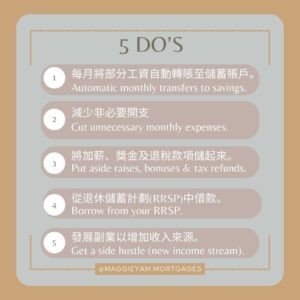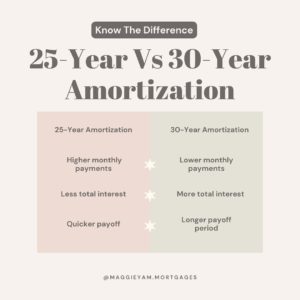Hi everyone,
I hope you’re all doing well. I wanted to share a quick update — I’m in the process of transitioning to a new chapter in my mortgage business. Along with this change, I’ll be updating my website and contact details.
While I won’t be sharing the full details here, if you’ve worked with me before or have any questions about your mortgage, I’m still here to help — just as always.
📩 You can now reach me at info@maggieyammortgage.ca
🌐 Or visit my latest website at www.maggieyammortgage.ca
Thank you so much for your continued support and trust over the years. I’m truly grateful to have been part of your homeownership journey, and I look forward to staying connected.
Warmly,
Maggie Yam
Licensed Mortgage Broker







